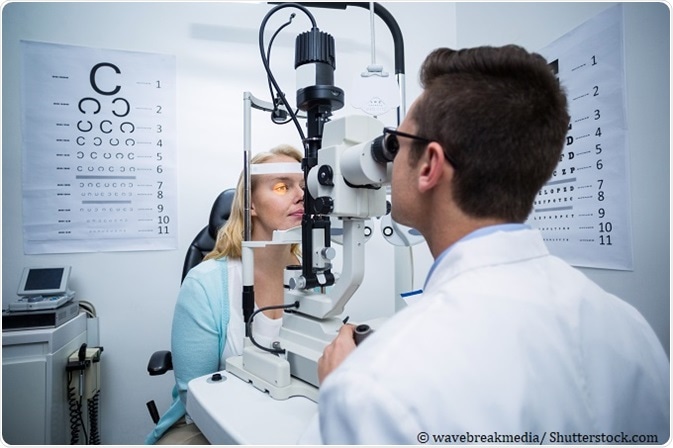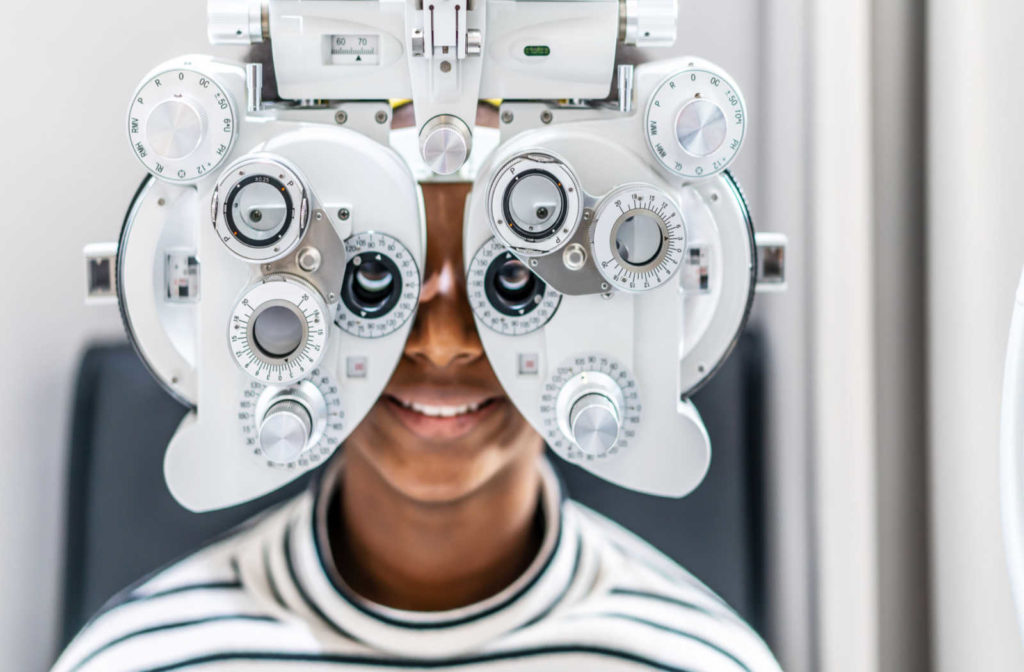Comprehending the Comprehensive Role of an Optometrist in Modern Eye Treatment
With developments in modern technology and an increasing emphasis on preventative treatment, optometrists are indispensable in identifying and taking care of persistent eye conditions, while additionally involving in early illness detection. Exactly how do these obligations converge with their function in promoting overall eye health and wellness, and what does this mean for person results in a collective medical care atmosphere?
Expanded Range of Technique
In recent times, the role of optometrists has advanced significantly, with lots of specialists currently accepting an increased scope of method that extends beyond typical eye exams. This advancement shows the growing recognition of eye doctors as main doctor in the field of eye care. Their obligations currently incorporate a large range of solutions, consisting of prescribing medications for ocular problems, taking care of persistent eye illness, and carrying out minor surgical treatments. This change has been driven by developments in optometric education, improved medical training, and the raising requirement for extensive eye care services, specifically in underserved locations.
Even more, optometrists are now a lot more associated with joint care, working closely with eye doctors, medical care physicians, and various other healthcare professionals to make certain holistic person care. This interprofessional cooperation is critical in taking care of intricate situations that call for a multidisciplinary method. In addition, eye doctors are playing a critical duty in public wellness initiatives, such as vision screenings and eye health and wellness education and learning, focused on improving area health end results.
The expanded range of practice for optometrists not just boosts their capability to provide extensive treatment however also addresses the expanding need for accessible and reliable eye treatment services, adding to overall health care renovations.
Early Disease Discovery
Very early detection of eye diseases is increasingly coming to be a centerpiece in the increased function of optometrists. As primary eye treatment providers, optometrists are distinctively positioned to recognize very early indications of ocular problems such as glaucoma, macular deterioration, diabetic retinopathy, and cataracts. This pivotal role is vital, as very early diagnosis can significantly improve the monitoring and diagnosis of these conditions, possibly avoiding vision loss and boosting client outcomes.
Optometrists use thorough eye assessments to discover refined adjustments in vision and eye wellness. These exams typically consist of evaluations of visual skill, intraocular pressure, and retinal health and wellness. The capability to recognize early indications of systemic wellness concerns, such as hypertension and diabetes, with ocular indicators better underscores the relevance of routine eye check-ups. Early intervention is not only valuable in protecting vision yet also in minimizing health care expenses connected with sophisticated disease treatments.
Additionally, optometrists play an important role in individual education, stressing the importance of routine eye evaluations as component of total health care. By cultivating a positive strategy to eye care, eye doctors contribute substantially to public health, guaranteeing conditions are caught and managed successfully before they can advance.
Advanced Diagnostic Methods
Advanced diagnostic techniques have transformed the practice of optometry, allowing specialists to identify and keep an eye on eye illness with unprecedented accuracy. These improvements have changed the optometric landscape, enabling for a lot more sophisticated assessment and intervention approaches. Technologies such as optical coherence tomography (OCT) give high-resolution, cross-sectional pictures of the retina, assisting in very early detection of problems like glaucoma and macular degeneration. This non-invasive technique has become vital in contemporary optometry, using comprehensive insights right into retinal layers.
One more crucial improvement is digital retinal imaging, which records comprehensive sights visit this page of the retina using high-def video cameras. This modern technology is crucial in recognizing changes in retinal structure in time, therefore aiding in the monitoring of conditions like diabetic person retinopathy. Visual field testing, boosted by computer-aided systems, permits precise mapping of a client's visual field, necessary in diagnosing and tracking glaucoma development.
Corneal topography, another notable analysis tool, generates in-depth maps of the cornea's surface area. This is specifically helpful in fitting call lenses and planning refractive surgical treatment. These advanced analysis strategies jointly enable eye doctors to give positive, targeted treatment, ensuring far better patient results and enhancing their critical role in eye health monitoring.
Handling Persistent Eye Problems
Taking care of persistent eye conditions is a foundation of optometric care that calls for a thorough understanding of various eye conditions and their long-lasting implications. Optometrists play an essential duty in managing, diagnosing, and tracking conditions such as glaucoma, diabetic retinopathy, and age-related macular deterioration. These conditions, if left neglected, can result in considerable aesthetic problems or loss of sight, highlighting the important relevance of continuous treatment and administration.
Optometrists use a series of analysis tools, consisting of optical coherence tomography (OCT), visual field testing, and fundus digital photography, to evaluate the progression of these chronic conditions. By very closely monitoring adjustments in ocular health and wellness, eye doctors can adjust therapy plans to reduce view disease progression. This may entail suggesting medications, recommending way of living modifications, or collaborating with eye doctors for surgical treatments when essential.

Role in Preventive Care
Precautionary care is an essential facet of optometry that concentrates on maintaining eye wellness and stopping the start of eye diseases. Optometrists play a critical role in early detection and avoidance, utilizing normal eye exams to determine risk elements and refined changes in eye wellness. Eye Doctor. These assessments are not just regarding vision correction but encompass an extensive assessment of eye features and structures, allowing the recognition of conditions such as glaucoma, cataracts, and macular degeneration at a very early phase
In enhancement to diagnostics, optometrists inform individuals on way of life options that advertise eye health and wellness, such as proper nutrition, UV security, and the value of regular eye check-ups. They encourage on the appropriate usage of electronic tools to stop digital eye stress, a growing problem in the electronic age. Eye doctors likewise offer guidance on protective eyeglasses for leisure and occupational activities, reducing the danger of injury.
Precautionary eye treatment includes systemic health and wellness concerns that manifest in the eyes, such as diabetes mellitus and hypertension. By working together with other health care experts, eye doctors add to all natural client care, highlighting the interconnectedness of systemic and ocular health. This proactive technique is vital in protecting visual skill and total wellness.
Final Thought
Optometrists now inhabit a critical duty in modern eye treatment, characterized by a broadened range that includes identifying and managing chronic eye conditions, suggesting drugs, and carrying out minor procedures (Eye Doctor Optometrist). Their expertise in very early condition discovery is enhanced by advanced diagnostic strategies such as optical comprehensibility tomography and electronic retinal imaging. By highlighting preventive treatment and client education and learning, eye doctors contribute substantially to overall eye health, working together with other health care specialists to guarantee extensive and effective client outcomes

In enhancement to diagnostics, optometrists educate clients on way of life choices that promote eye health and wellness, such as proper nourishment, UV defense, and the importance of routine eye exams.Preventive eye treatment expands to systemic health and wellness issues that materialize in the eyes, such as diabetes mellitus and high blood pressure.Optometrists now inhabit a crucial role in contemporary eye care, characterized by an increased range that consists of diagnosing and managing chronic eye conditions, recommending medications, and carrying out minor medical procedures.